
They flock every August to the woods of New Hampshire, campers buzzing with excitement over three days of courses, activities, fun and catch-ups, everyone dressed in shades of red and green.
Those are not the camp colours, however. Some attendees just dress this way all year.
As part of the annual gathering of Kris Kringles and Mrs Clauses, professional merrymakers come together from all over to discuss the business of wearing the Big Red Suit and black shiny boots. They call their non-formal attire “Santa casual.”
When British filmmaker Nick Sweeney discovered New Hampshire’s Santa Camp, he felt almost like a kid on Christmas morning.
“I heard about this actual summer camp for Santa Clauses, where Santas from all over the place get together, sleep in bunk beds, go swimming in a lake, like sit around a campfire ... and I just thought, ‘Oh my God, I can’t believe that this exists. How has nobody done a documentary on this? This is so surreal and absurd,’” he told The Independent in an interview last week.
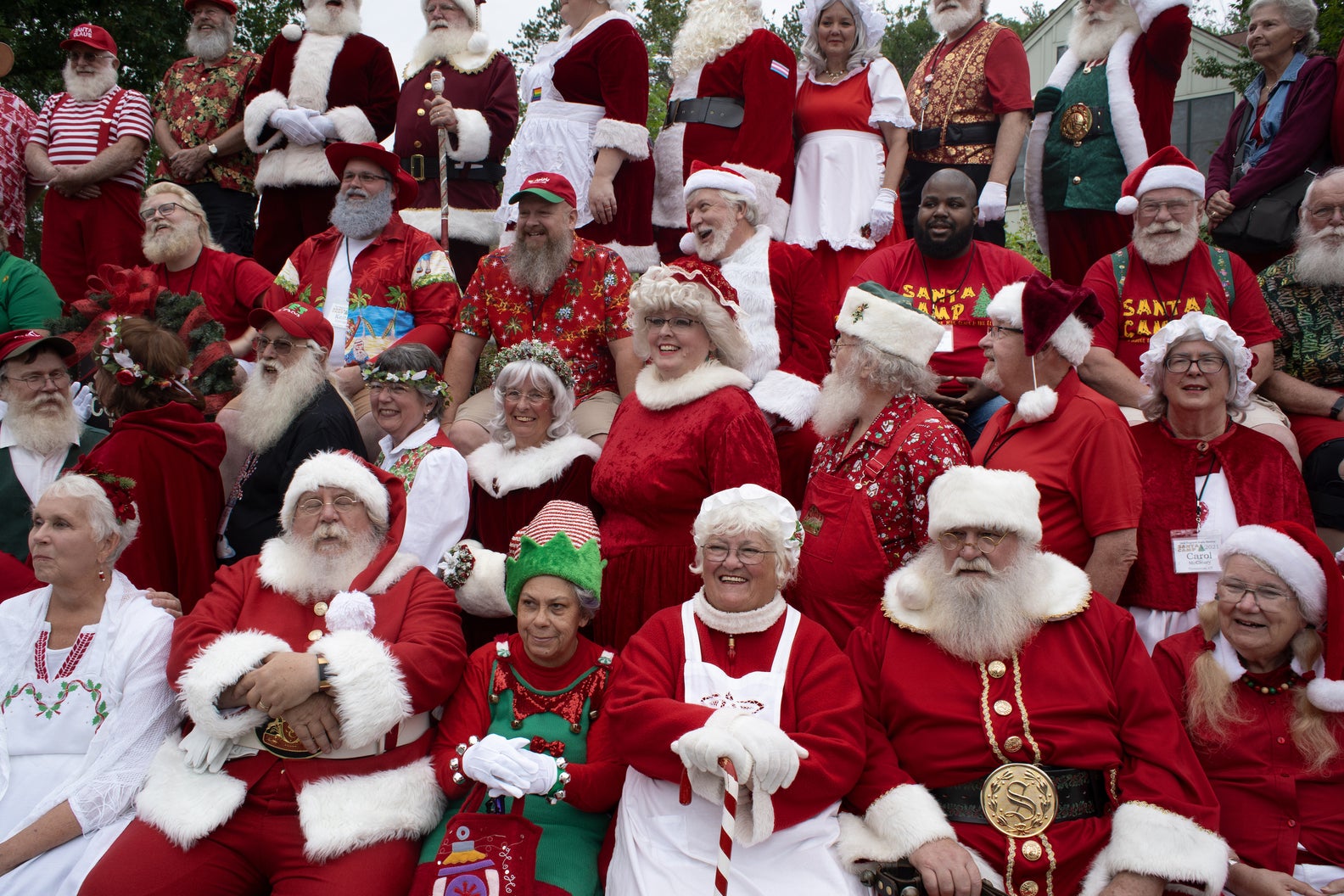
After contacting the organizers and securing their participation, Mr Sweeney and his team soon found themselves filming amidst the campers themselves and that “surreal and absurd” was even more overwhelming firsthand.
“Nothing could have prepared me or the crew for how completely ... surreal and fascinating and enchanting it was, being in the woods of New England with, I think, close to 100 Santas, Mrs Clauses and elves,” he says. “I mean, if I weren’t there filming it, no one would have believed that it happened. When there’s moments where the Santas are on kayaks, or where they are having these classes where they’re really concentrating on the question, like, ‘What do you say when a kid asks if you’re the real Santa,’” it was just so wild. I was pinching myself and just thinking, if I didn’t have a camera, nobody would believe me if I tried to tell the story. They’d think I was a crazy person.”
The story that Santa Camp, which debuts Thursday on HBO Max, tells is a fun, good-natured tale of the camp’s history and attendees. It unpacks how the camp is evolving with the changing times, particularly as communities diversify and create a demand for Santas that reflect those identities.
When Mr Sweeney first started speaking with the organizers, he found that “they were starting to have these discussions around diversity and representation ... these discussions that were happening all over America – and they were also having more and more requests for Santas from different backgrounds from their clients and customers.”
Mr Sweeney says that when he “heard all of these things, I was just kind of like, ‘Wow, not only is this visually completely wild and surreal, but on top of that they’re actually dealing with these bigger issues – but they’re all dressed as Clauses.’”
Santa Camp follows three untraditional Santas as they head to New Hampshire for three days: Finn, who is disabled and mostly nonverbal, but has a great “ho, ho, ho;” Levi, who is transgender; and Chris Kennedy, a Black Santa who previously made headlines after receiving a racist letter about his front yard Christmas display.
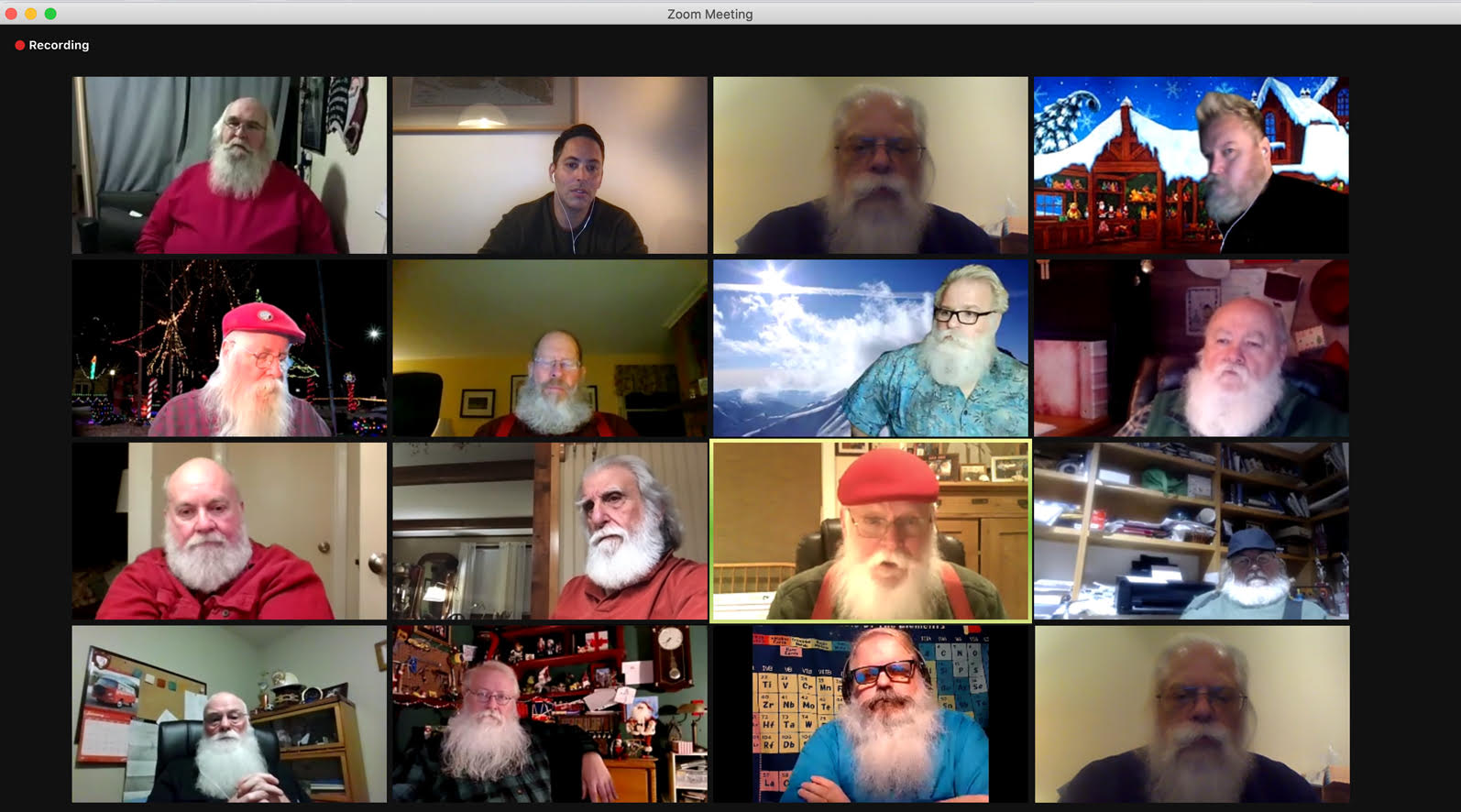
The documentary makes for more than a few tear-jerking and thought-provoking scenes, as all participants explore the concept of Santa and his traditional portrayal: Male, white, fat and mobile.
The more light-hearted scenes in the documentary -- and they are plenty -- can be nothing short of hilarious, as are the characters featured.
“I am a ham,” admits Dan Greenleaf, also known as Santa Dan. “I like to perform.”
A jolly 71-year-old “real beard” Santa (this is a big sign of status, it seems, in the Santa community) who co-founded the Camp in 2015, Mr Greenleaf believes there’s a lot more to love about the role than simply acting.
“There’s just something very unique about being Santa, especially as a real-bearded Santa, because even when you’re not dressed as Santa, in the middle of the summer, people see you and they just smile and respond to you,” Mr Greenleaf told The Independent. “I think when they see me, it kind of triggers memories of their own childhood and their own experience with Christmas.”
And then there’s the response from children.
“When they first see you, the look in their eye? if it’s not total terror, and then they go running away?” he laughs. “Amazement ... it’s that love and joy, wondering, that you see in the children’s eyes. As you talk to new Santas, you’re going to hear that over and over again. I mean, there’s just something about that expression.”
The father-of-two first began really pursuing Santa as a profession in 2008.
“I probably went for three years, probably three seasons, and never had met another Santa,” he says.
Mr Greenleaf eventually discovered a national Santa society holding a convention in San Diego in 2012 so he and his wife flew to California to attend. When he walked in and saw a “sea of red,” he admits that “it was kind of shocking,” but it subsequently set him on a resolute path.
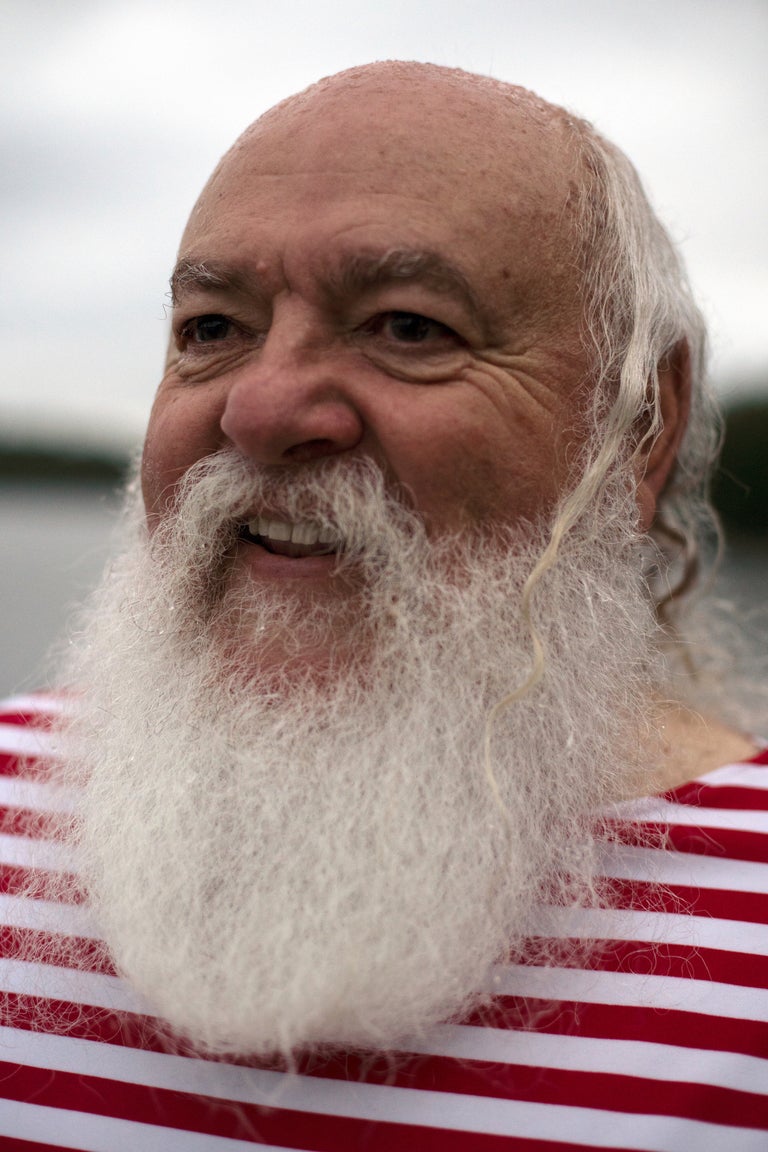
“It was such a great introduction to being Santa, because I kind of had been just plugging along on my own, trying to figure out where to find work and ... what to do when I did find work and that kind of thing” he says. “So going there, and having the workshops and the information provided, was such a huge help to get me moving further along in my career.”
He also met two other East Coast attendees, one from Connecticut and another from New Hampshire, and the trio began the New England Santa Society in 2012, followed by the Santa school a few years later.
“The first year, we actually called it the New England Santa Academy,” he tells The Independent. “But one of our students, who was brand-new to being Santa, kept excitedly telling people, ‘I’m going to Santa Camp!’ And before the event was over, we decided, you know, that’s a great name.”
Dianne Grenier, a founding member of the Connecticut Society of Santas, has also been involved with the camp from the start. She retired after 40 years at aerospace company Pratt & Whitney and brings an engineer’s pragmatic eye to her role of Mrs Claus and to other needs the camp must meet.
Appearances as Kris Kringle and Mrs Claus are long and gruelling; there’s “no rest,” she says, and there are practical matters that must be ironed out.
“A couple of things they teach you at Santa Camp, that you just don’t think about, one is, where does Santa eat?” she says. “He can’t just run into McDonald’s, grab a burger and come out. You’ve got to stop at every table; it takes a half hour, 45 minutes to get a burger! They start at nine o’clock in the morning and go til nine, ten at night, just one event after the other. And it’s like, where do you eat? And the other thing is, where do you go to the bathroom? You can’t just go into a theater thing, you know, and belly up to the urinal with six other guys. Santa can’t do that. They have to find [out], when they make reservations, bookings, do they have a private bathroom?”
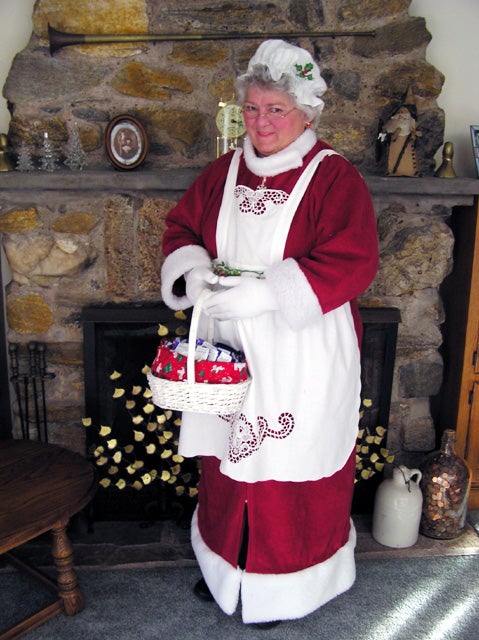
Ms Grenier teaches a course on Mrs Claus at Santa Camp, and she’s an expert on the history of Santa’s wife. She says she became interested in being Mrs Claus around 16 years ago, when a friend put on a Santa suit at an annual Christmas brunch they’d hold in a restaurant with other pals.
“It was amazing to watch this man,” she tells The Independent. “The attention that he got, he never sat down and ate - because he would take photos, everybody would come ... and I looked at him and said, ‘Oh my goodness, this is great. You need a Mrs Claus.’”
She found a red bathrobe at JC Penney, white gloves at Target, a $1 basket at a tag sale, then topped off the outfit with cheap Christmas-y earrings, a mop hat and apron (”Mrs Claus does a lot of baking of chocolate chip cookies, obviously,” she says.)
Like Mr Greenleaf, she explains that there’s a lot more to being Santa and Mrs Claus than the outfits and the acts.
“To be able to be a good Santa or Mrs Claus, you need to be able to take a small child, look them in the eye, and lie your pants off to them .. as you you whisk them off into a magical place with flying reindeer and fat old men in red suits who travel all over the world in one night, shimmying down chimneys, delivering gifts to boys and girls.”
If anyone should be a good judge of good Santas, it’s Ms Grenier; not only has she been Mrs Claus for 16 years, she’s also worked with quite a few Kris Kringles.
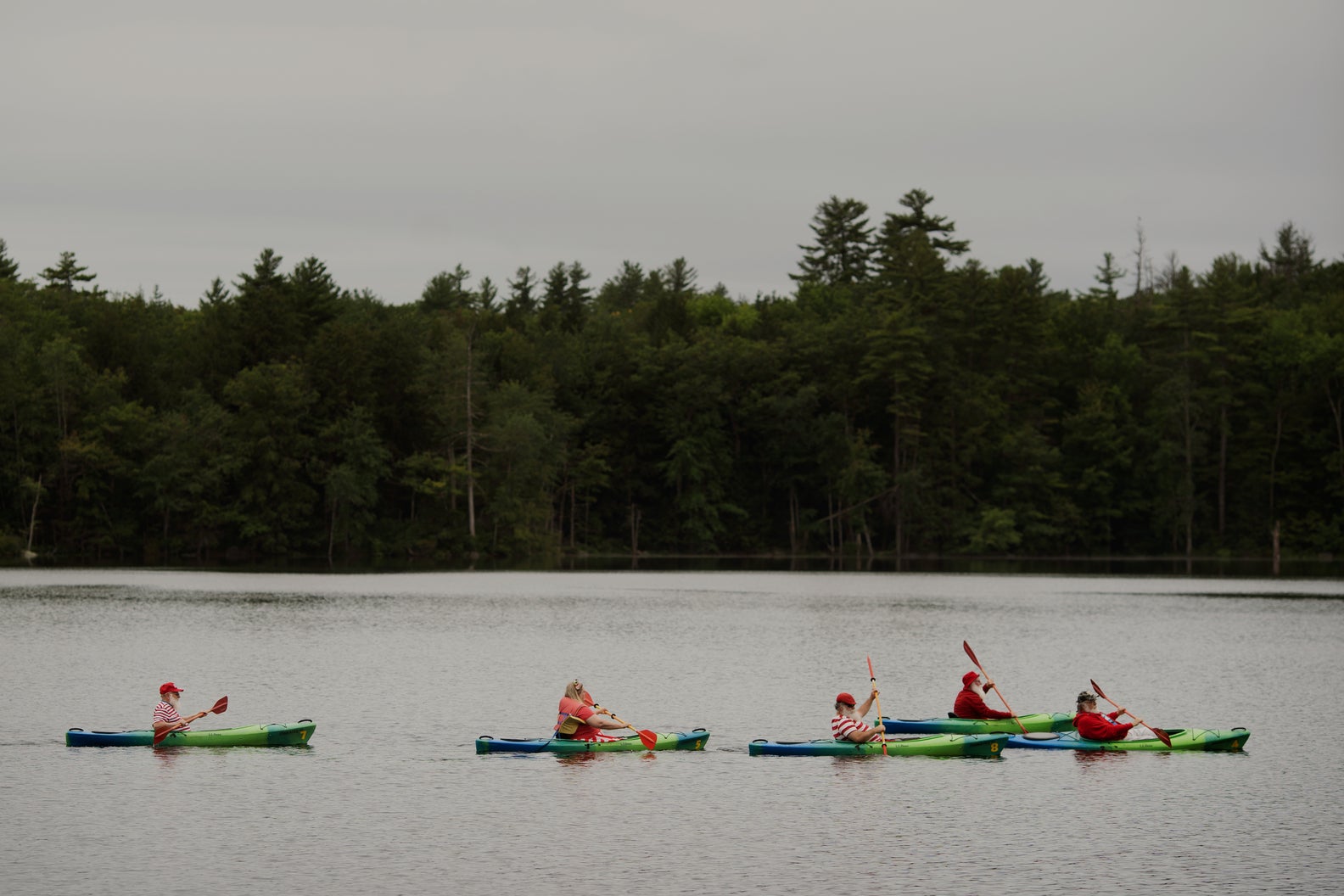
“Most Mrs Clauses are married to their Santa Claus; their husband is their Santa, and they don't go out with any other Santas - and if they have a kid, they put an elf hat on them, and now they become a family ... But I go out with different Santas so have a different perspective,” she says.
She added: “You can put a man in a Santa suit, and all you have is a man in a Santa suit. To become a real Santa starts from within. And I think Santas and Mrs Clauses and the elves seem to have been, like, born with a string of Christmas lights wrapped around their hearts. The feeling, or the persona, of Santa comes from way down within. Places like Santa Camp, they just put the finishing touches on it.”
She can tell a “PTA Santa” from the real deal, she says, but candidly points out that great Santas are becoming more scarce.
“We have ... I guess you call it a problem,” she says. “It is a problem in the Santa community, especially here in Connecticut; we are way short of Santas.”
Matter-of-factly, she says: “We’re all old! Every year, there’s a couple that die off. They do! They’re old! And that’s just the way it goes ... or they end up on oxygen or they end up in a wheelchair ... and that’s not a good look.”
Mr Greenleaf, for his part, likes to approach possible Santas. He even carries a business card for recruitment.
“If I see somebody with a white beard in public, I will usually say, ‘You wear red in December?’ and if they give you this funny look, you think, ‘Oh, nevermind.’ But of course we’re always looking for Santas,” he says.
Sometimes it goes well when he approaches rotund, bearded strangers; sometimes it does not.
“I’ve had a few where I’ll say, ‘You should really think about becoming Santa,’ and they go, ‘I hate kids,’” he says.
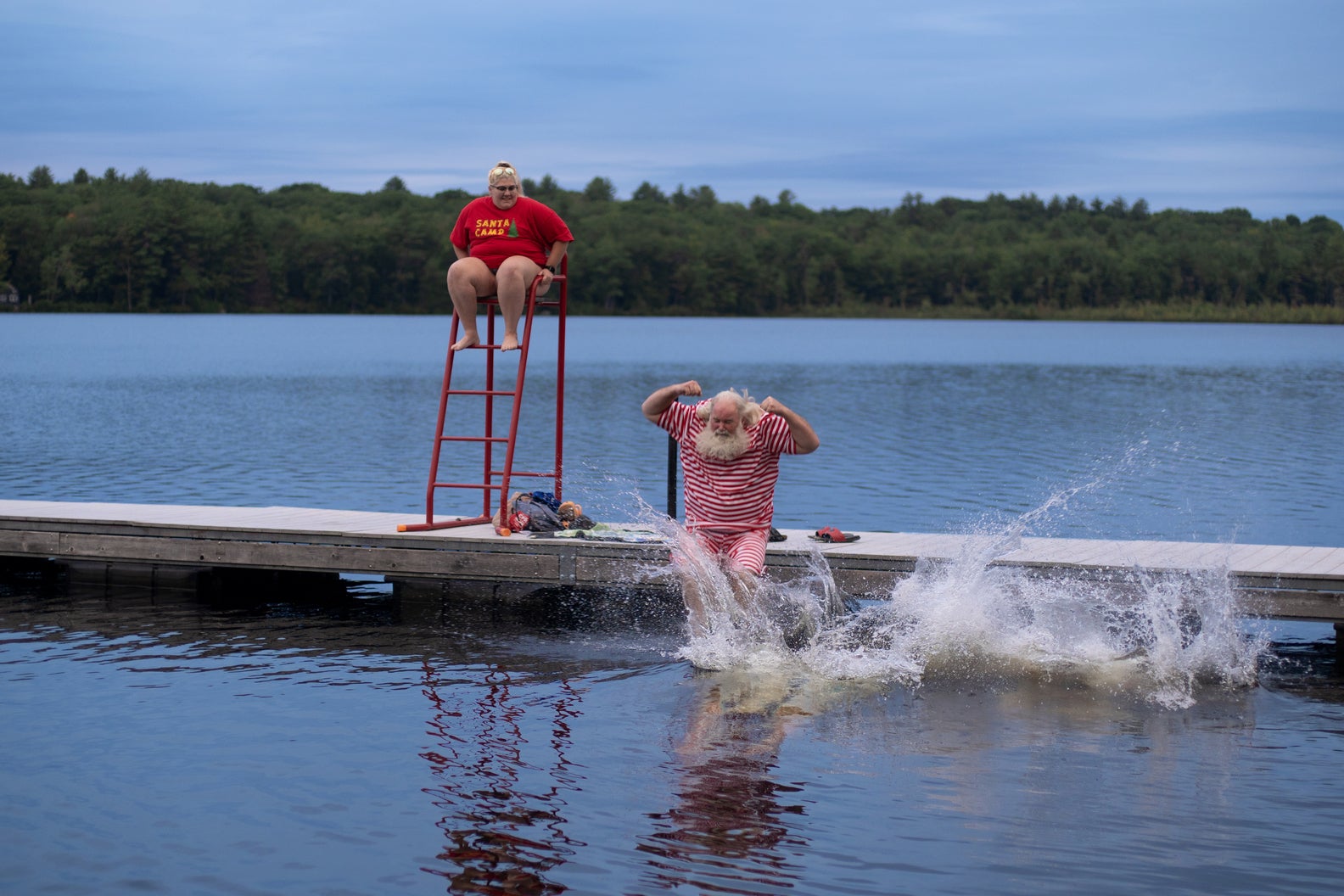
Whether a jolly White man with a white beard, a nontraditional Santa or a Mrs Claus, all agree that there is unrivalled joy in representing beloved symbols of Christmas.
“We get a lot more out of it than people,” Ms Grenier tells The Independent. “Imagine, because you do this, to [bring] that kind of joy to people is just wonderful. And it’s not just the children; we do a lot of elderly places.
Ms Grenier, who is 74, was thrilled to see the film and attend the premiere in New York last weekend, where she was mobbed as Mrs Claus, she says. She’s used to people laughing when they hear about Santa societies and camps, and wants a wider audience to realise just how much goes into the roles.
“I think the Santa movie, it kind of shows that, first, there’s room for everyone, no matter what, obviously,” she says. “And there’s a place here when you can go to learn all about it.”
The director himself has certainly been schooled in the ways of Santa; Mr Sweeney says he thinks he had expected the participants to be “a little bit more two-dimensional than they turned out to be.”
“I think I thought that, you know, these will be Christmas performers, and all that we’re going to talk about is reindeer and snow,” Mr Sweeney says. “And instead, we ended up seeing them grappling with these huge social issues ... giant, complicated ideas that all of America and all of the world are dealing with.”
He points out a scene where Mrs Clauses discuss getting equal pay, recognition and respect to that enjoyed by Santas.
“They’re talking about these huge issues that affect all women, but they’re dressed in Claus suits and they’ve got bells on their boots,” Mr Sweeney tells The Independent. “And so there’s this element of surrealness to it, which is very captivating, but then they’re talking about these very, very important issues.”
The film premiered at the DOC NYC film festival last weekend and begins airing on HBO Max on Thursday.
“You know, one of the things that Dan says at the beginning of the film ... he says people have a very specific idea of what Santa should look like,” Mr Sweeney says. “He jokes that, you know, sometimes, if Santa is not fat enough, people complain because they have a very rigid idea of what that is. And what I hope people take away from this film is that there’s room in the legend of Santa for everybody.”







